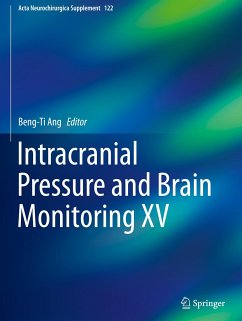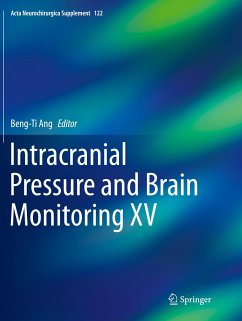
Management of Severe Traumatic Brain Injury
Evidence, Tricks, and Pitfalls
Herausgegeben: Sundstrøm, Terje; Grände, Per-Olof; Luoto, Teemu; Rosenlund, Christina; Undén, Johan; Wester, Knut Gustav

PAYBACK Punkte
65 °P sammeln!
This comprehensively updated second edition features major revisions, 24 new chapters and more than 40 new authors, reflecting both the advances and key challenges within the field. Offering a systematic guide to the management of children and adults with severe traumatic brain injury throughout the entire chain of care, it includes evidence-based recommendations for each diagnostic and therapeutic measure, together with tips, tricks and pitfalls. The authors are all highly experienced clinicians and researchers who work with neurotrauma patients on a daily basis, and the editors represent the...
This comprehensively updated second edition features major revisions, 24 new chapters and more than 40 new authors, reflecting both the advances and key challenges within the field. Offering a systematic guide to the management of children and adults with severe traumatic brain injury throughout the entire chain of care, it includes evidence-based recommendations for each diagnostic and therapeutic measure, together with tips, tricks and pitfalls. The authors are all highly experienced clinicians and researchers who work with neurotrauma patients on a daily basis, and the editors represent the Scandinavian Neurotrauma Committee.
The book helps professionals provide more systematic and higher-quality care in prehospital settings, primary hospitals, neurosurgical departments, neurointensive care units, and rehabilitation facilities. It is intended for all healthcare personnel involved in the multidisciplinary management of patients with head injuries, especially those inemergency care, neurosurgery, anesthesiology, radiology, and rehabilitation.
The book helps professionals provide more systematic and higher-quality care in prehospital settings, primary hospitals, neurosurgical departments, neurointensive care units, and rehabilitation facilities. It is intended for all healthcare personnel involved in the multidisciplinary management of patients with head injuries, especially those inemergency care, neurosurgery, anesthesiology, radiology, and rehabilitation.












